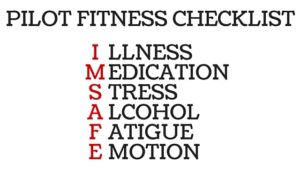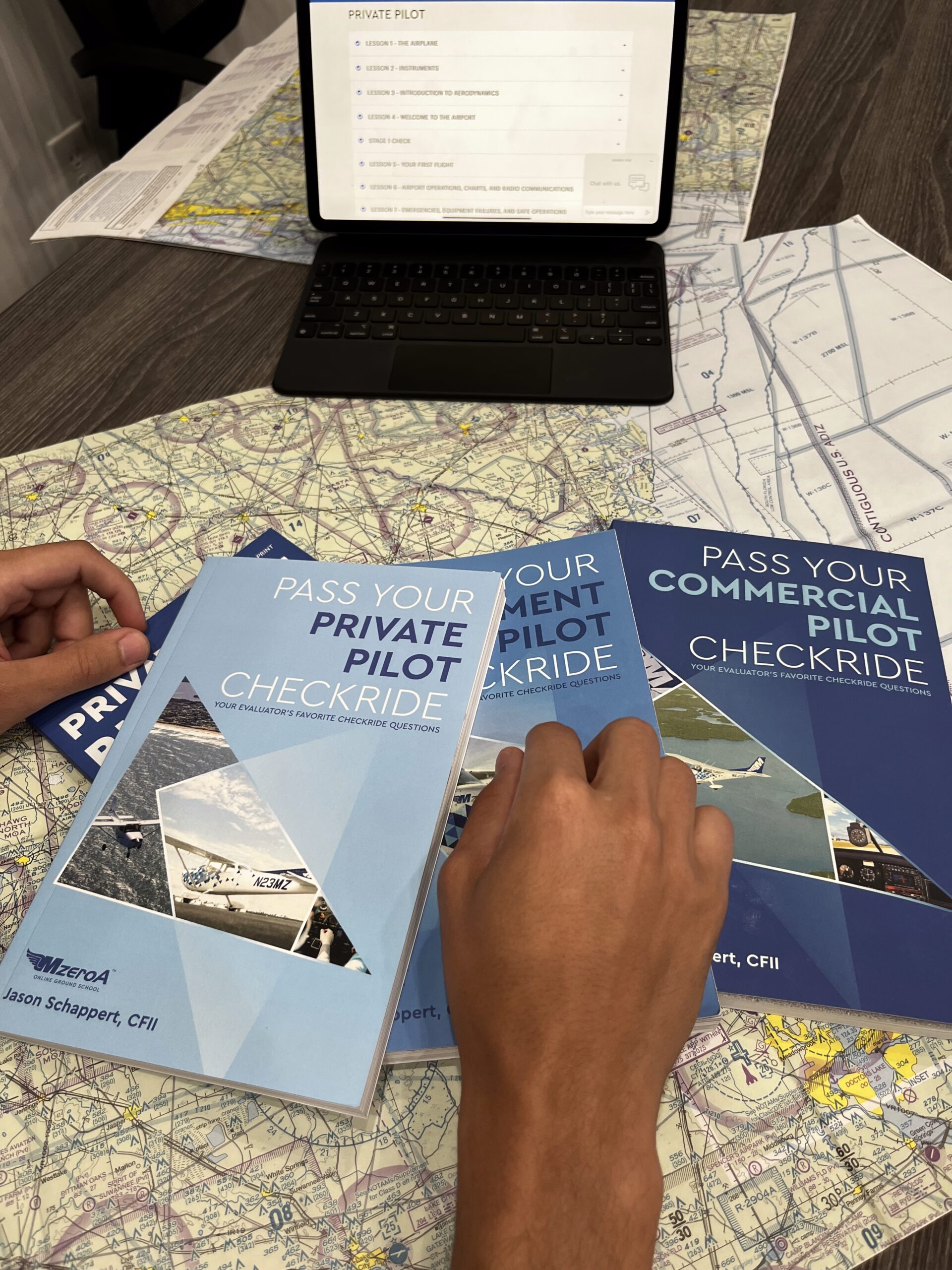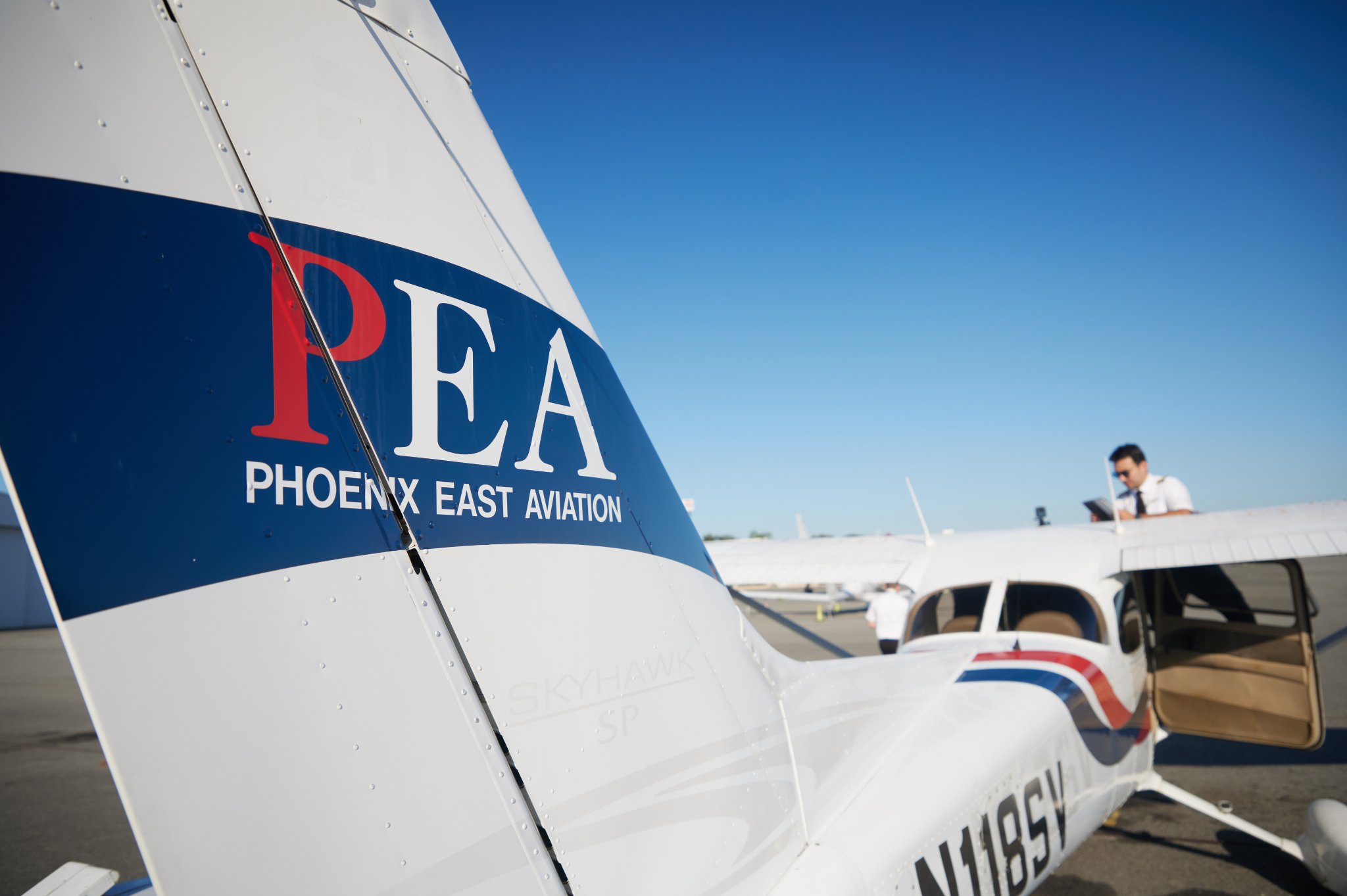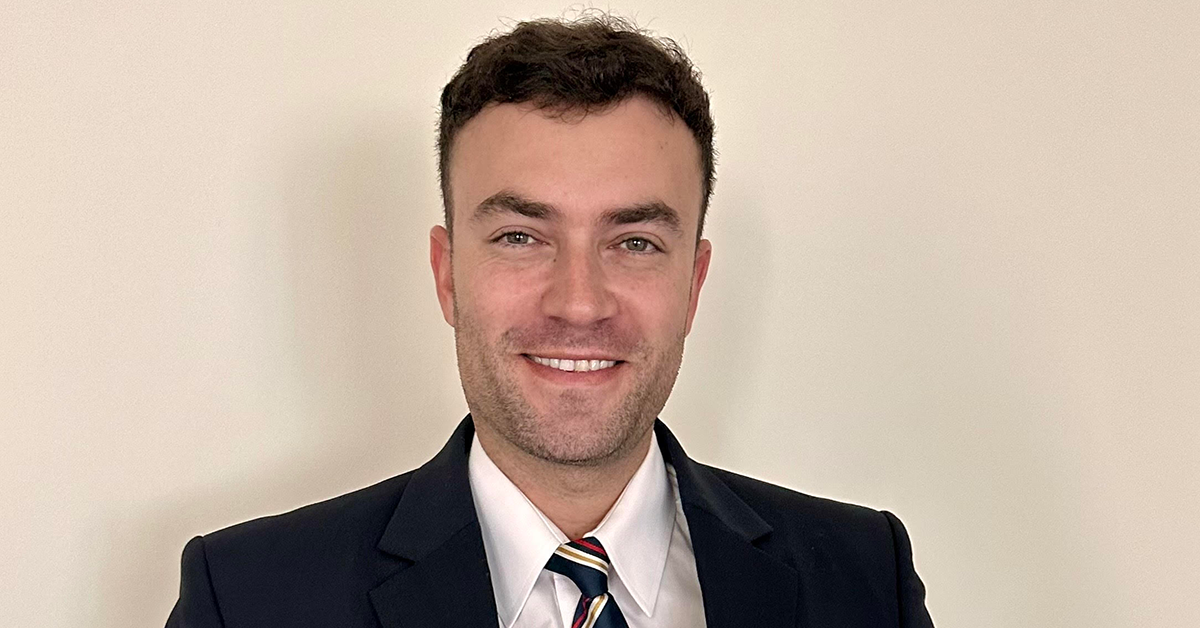A Checklist for Pilots: How Pilots Assess Their Health Before They Fly
Before flying, pilots must undergo thorough preflight planning procedures. This includes tasks such as ensuring that their aircraft is prepared to fly, whether that be checking the fuel reserves or the plane’s maintenance history, verifying their flight path with Air Traffic Control, and weather conditions.
 A pilot’s physical fitness is another important component of the preflight process, and the Federal Aviation Administration’s (FAA) IMSAFE checklist is one way that pilots can determine that they are not posing any fitness or medical risks before flying. This checklist can help pilots assess whether their health could be a potential hazard before flying. If a pilot gets in the habit of using this checklist, it could minimize safety risks while also allowing pilots to operate at peak performance. Each letter of IMSAFE represents one of six “aeromedical hazards” as defined by the FAA: illness, medication, stress, alcohol, fatigue, and emotion.
A pilot’s physical fitness is another important component of the preflight process, and the Federal Aviation Administration’s (FAA) IMSAFE checklist is one way that pilots can determine that they are not posing any fitness or medical risks before flying. This checklist can help pilots assess whether their health could be a potential hazard before flying. If a pilot gets in the habit of using this checklist, it could minimize safety risks while also allowing pilots to operate at peak performance. Each letter of IMSAFE represents one of six “aeromedical hazards” as defined by the FAA: illness, medication, stress, alcohol, fatigue, and emotion.
Illness and Medication
The “illness” category of IMSAFE represents any level of sickness a pilot feels before flight. The FAA states that pilots should not fly if they are feeling any sort of illness, since this may affect a pilot’s ability to fly. The FAA states that when a pilot is ill, they may experience fever and other distracting symptoms which can impair their judgement, memory, alertness, and ability to perform calculations.
Even if a pilot is medicated for an illness, it is still unwise for them to fly, since medications can cause changes in performance, especially if they interfere with a pilot’s responsiveness.The relationship between medications and flying is more complex than many pilots realize. While pilots frequently seek definitive lists of approved medications, there is no universal list that exists. The aviation medical community emphasizes that often it is not the medication itself, but the underlying condition requiring treatment that poses the primary concern. A fundamental principle in aviation medicine holds that if a pilot feels ill enough to need medication, they’re likely too ill to fly safely – even a simple cold could compromise flight safety.
Additionally, medication approvals vary internationally, with drugs permitted by the FAA potentially being prohibited in Europe and vice versa. The misconception that over-the-counter or herbal remedies are inherently safer than prescription medications can be dangerous, as any medication carries the risk of adverse reactions that could impact flight safety. Pilots that require any medical treatment or medications should consult both their general practitioner and Aviation Medical Examiner before flying.
Stress
Stress, the third category of the IMSAFE checklist, refers to a pilot’s response to events or factors known as “stressors,” which can often lead to feelings of overwhelmingness and impaired decision making. Stressors can take on many forms, such as those that stem from work, finances, and health. Stress is unavoidable, however, individuals can choose to adopt habits that affect how they handle stress. This could include accepting personal limitations, understanding what causes stress and minimizing exposure to avoidable stressors, and forming a strong support system.
Alcohol
Pilots should be wary when consuming alcohol and how long the effects will last. This is dependent on a number of factors, such as the alcoholic content of a beverage and the volume of consumption. The FAA prohibits pilots from flying within eight hours of alcohol consumption, although they recommend that a pilot waits at least 12 to 24 hours after consumption to fly.
Fatigue
 Fatigue, otherwise known as tiredness, can fall into two categories: acute and chronic, both of which are caused by significant periods of physical and mental exertion. The main difference between the two is that acute fatigue is short-term and can be reduced by a normal night’s sleep, while chronic fatigue is long-term and occurs due to a lack of sleep and continuous acute fatigue. Chronic fatigue requires more substantial rest time to remedy than acute fatigue, and is considered to be a more serious condition. It is up to each pilot to determine whether they are getting adequate rest and what they need to do to prevent prolonged periods of fatigue.
Fatigue, otherwise known as tiredness, can fall into two categories: acute and chronic, both of which are caused by significant periods of physical and mental exertion. The main difference between the two is that acute fatigue is short-term and can be reduced by a normal night’s sleep, while chronic fatigue is long-term and occurs due to a lack of sleep and continuous acute fatigue. Chronic fatigue requires more substantial rest time to remedy than acute fatigue, and is considered to be a more serious condition. It is up to each pilot to determine whether they are getting adequate rest and what they need to do to prevent prolonged periods of fatigue.
Emotion
The last letter of IMSAFE stands for emotion, which reflects a pilot’s feelings at any given moment in time that might influence their ability to make decisions. Emotions tend to operate hand-in-hand with stress, and it is important for a pilot to separate from negative emotions during a flight so that both the pilot’s safety and the safety of any other individuals on the aircraft are protected. Pilots must maintain level headedness and a calm temperament to avoid running into negative consequences.
While the IMSAFE checklist is not a comprehensive assessment of a pilot’s fitness to fly, it encompasses several main areas that are vital for determining a pilot’s health before they fly.
Interested in learning more information in regards to Phoenix East Aviation and their flight training programs? Contact info2@pea.com to get in touch with their Admissions Department.
References:
#:~:text=The%20safest%20rule%20is%20not,aviation%20medical%20examiner%20for%20advice.




